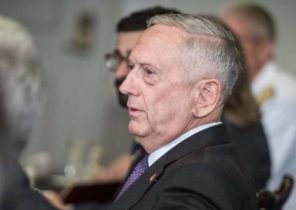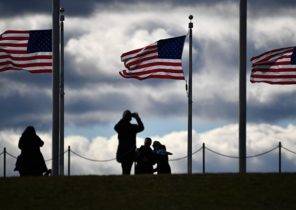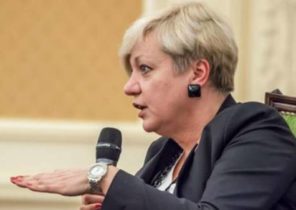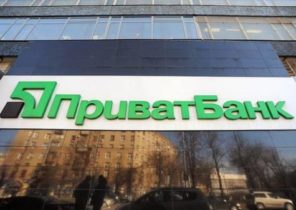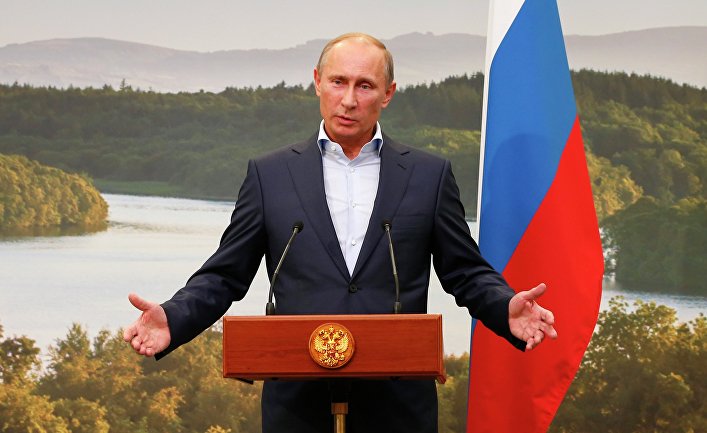
Russian President Vladimir Putin is not a joke went. A list of his actions that are causing concern to everyone well-known: aggression in Ukraine, interference in the Syrian conflict on the side of President Bashar al-Assad, the scale of intelligence operations, which may include a hybrid campaign to discredit Hillary Clinton, the creation of a giant propaganda machine, support for nationalist and populist movements in Europe. But why is Putin doing this?
The widespread point of view States that Putin and members of his entourage examine the relations between Russia and the West as a game in which there can be only one winner. Molly McCue (Molly McKew), a former adviser to anti-Russian leaders of Georgia and Moldova, recently wrote an article quickly spread on the Internet, which she claims currently is war, and calls on the West to vigorously oppose the Russian leader.
Some proponents of this point of view concentrate mainly on bloodlust and incredible greed of Putin. Garry Kasparov, world chess champion and long-time opponent of Putin, says that Putin “don’t think about the fact that it would be better or worse for Russia and Russians, he thinks only about how to do better for themselves and a narrow circle of oligarchs.”
Both points of view deserve attention: the relationship of Putin to the West — at least to his centrist elite is resolutely hostile, and revanchist. Undoubtedly, its main goal is the preservation of their power, as evidenced by the steps taken to exterminate the opposition in Russia — whether through the falsification of election results or by the destruction of the independent media. However, these clichés lead to excessive simplification of the situation. In a compelling quest to find the definition of what is often called a new cold war, Western leaders and politicians may not see the forest for the trees. To understand what steps Putin is to counteract, they must first understand its strategic goals.
Impetus to Putin and his closest friend and aide is not a primitive way of thinking “us versus them”, but rather a mixture of mysticism and capitalist instincts. Anton Vaino, whom Putin last year appointed to the post of head of the presidential administration, was the co-author of the book entitled “victory,” in which global politics is seen as game. It is an esoteric treatise, which refers to neoscape — a strange device that “detects changes in the biosphere and human activities”. However, this concept incorporates many of the tips, allowing to understand the thinking of the Kremlin. For example, the difference between war and games are described as follows:
The war has its own and alien, friend and enemy, the front and rear. War has a beginning and an end. Victory and defeat. In the game all the way. The game is the system of chess, draughts or card moves, produced in a different space than that in which the war is waged with a different degree of perspicacity and understanding the convergent processes of interaction between the warring parties. In the game time flows differently, otherwise your relationships. Your may be a stranger, and a stranger — her.
Called Putin a thug, but he still sees himself as grandmaster, leading a complicated game with elements of violence and various ways. In the “victory” goal is economic: a dramatic increase in the value of Russian assets, which will make Russia an equal participant in the process of developing “rules of the Global game.” In 2012, when this book was published, Putin has taken decisions in which preference is not the economy, and geopolitics. But this does not mean that the long-term goal has changed.
Now you can find evidence that it has not changed. This week Frauke Petry (Frauke Petry), co-Director of the German party “Alternative for Germany” — a nationalist, Pro-Putin party, which has demonstrated quite good results in recent regional elections — published in the Swiss newspaper Weltwoche essay in which she cited arguments in favor of creating a giant free trade zone that includes the USA, Europe and Russia, in favour of turning the EU into a much looser Association — primarily an economic unit is compared to its current variant. Petri writes:
Elected Donald trump President of the United States will open new opportunities: free trade in the territory from Vladivostok to anchorage, but not on those terms that give large companies an exclusive advantage over medium-sized businesses.
Putin also repeatedly talked about the establishment of the trade zone from Lisbon to Vladivostok, although he never mentioned that it might involve the United States. The Kremlin is looking for channels through which he can convey his ideas to citizens of the West, and such European nationalists as Petri, perhaps, are some of the best sources of Putin’s programme. Putin’s party “United Russia” even enters into formal alliances with nationalist parties of Europe and the “Alternative for Germany” is no exception.
It should also be recalled that the Ukrainian crisis began when Russia tried to involve neighboring States in the post-Soviet free trade zone that Putin is trying to create. Ukraine decided to make a choice in favor of EU membership, the Kremlin has offered to hold tripartite talks on economic cooperation, but the EU refused to invite Russia to the negotiating table. Then Moscow pressured the then President of Ukraine Viktor Yanukovych, that he refused to sign the Association agreement with the European Union, and shortly thereafter the Pro-European Ukrainians overthrew his government. Three years later, it is still difficult to imagine the friendly talks between Russia, Ukraine and the European Union — and in the past this opportunity was.
In other regions, as in Ukraine, Russia might want only a relatively modest economic benefits, and the opportunity to participate in decision-making. In his quest to achieve more favorable terms of trade and increase security, Putin is much more predictable than eccentric Donald trump. Not necessarily lead the game to the point where there will be only one winner.
For example, the middle East, Russia wants to sell weapons and to conclude energy deals with Turkey and U.S. allies in the Persian Gulf. The US and Europe will not lose anything if I let this happen and will cooperate with Russia in the fight against common terrorist threats. The UN security Council actually admitted it, supporting a truce with the mediation of Russia and Turkey — while this truce is maintained.
For many in the West Putin for his military campaigns destroyed the ability to act in a straight line. First was the norm to think in terms of retribution. But the reality is that Russia is a major nuclear power against which no nation, including the US, does not want to go to war. Large-scale sanctions on the Iranian model is also impossible, because a cornered Putin may take even more aggressive steps and probably even try to test NATO’s strength.
All this might cause unpleasant feelings among the Western leaders and the Russians, hoping for a more democratic regime in their country. But to deny it makes no sense. 2014 tactical goal of Putin was to demonstrate the futility sluggish policy of containment, the inability of open war and unifying effect of a foreign enemy for the Russians.
And all this he convincingly demonstrated. This has damaged the USA’s reputation in the world and has created new threats for the EU. However, since many Western politicians still do not fully believe him, Putin thinks that he has to continue to escalate war hysteria and to interfere in the internal politics of Western countries. Neither Putin nor his entourage do not want to play the role of bad guys. Many of them are happy victory trump, because for them it may indicate a potential break.
A sincere attempt by Western leaders to Putin find a common language will be immediately called appeasement. But actually it will be a decisive step to prevent further strengthening of the position of Putin. Even the failed “reset” policy of relations with Russia, taken during the first term of Barack Obama, almost had a devastating effect on his regime: the gradual integration of Russia into the Western economy under this policy has enriched and strengthened the Moscow middle class, and by 2011, its representatives were ready to protest against election fraud and to look for new leaders.
The current hostile attitude towards Russia, on the contrary, only strengthens Putin’s position in power and further weakens his Pro-Western opponents who are in the country almost does not remain. Paradoxically, the achievement of Putin, his ultimate strategic objectives can lead to changes that can put an end to what is today called the Russian threat.
